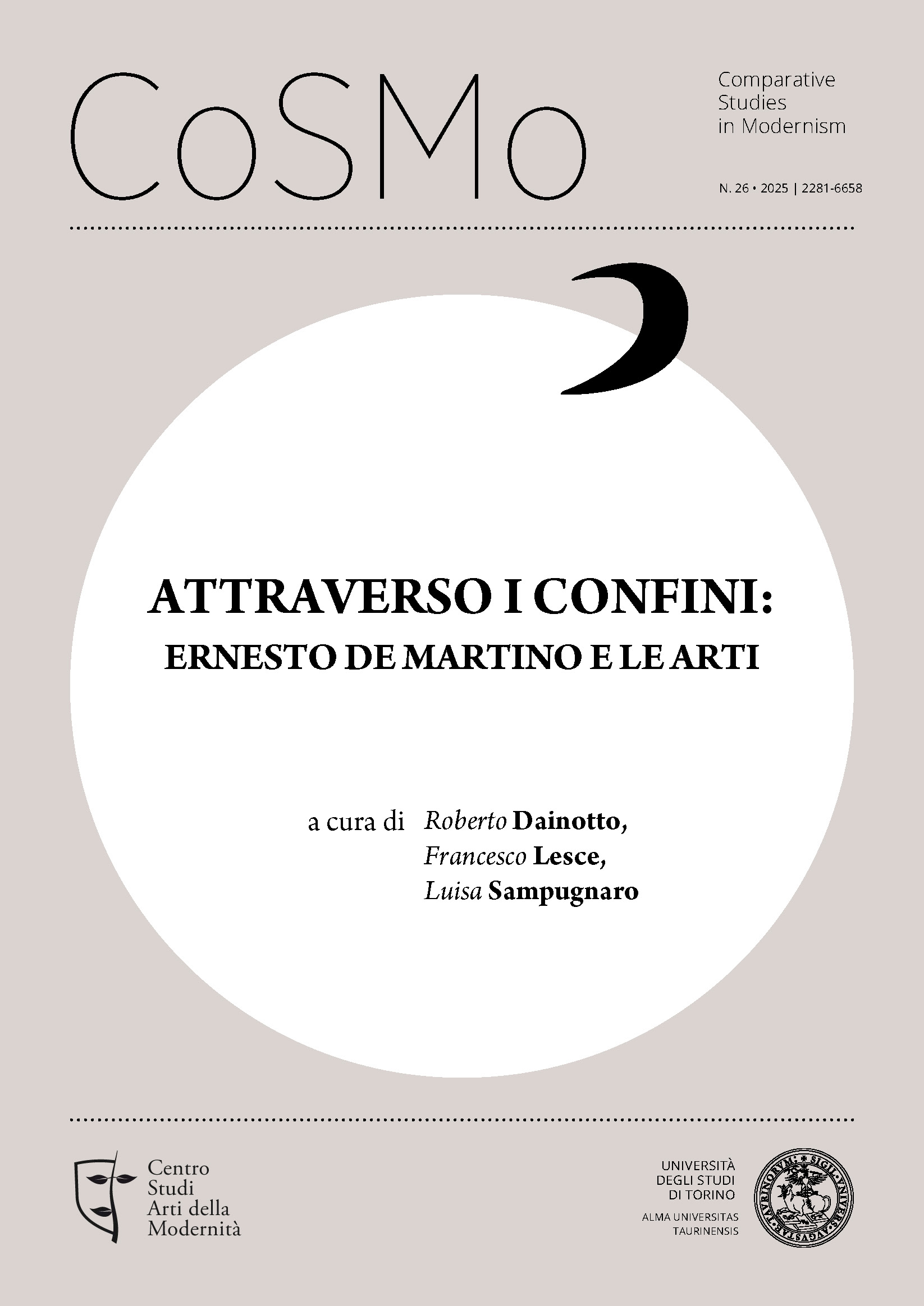Crisis, Culture, and Creation
Ernesto De Martino’s Ethos of Transcendence beyond Cassirer and Heidegger
DOI:
https://doi.org/10.13135/2281-6658/12176Keywords:
Ernesto De Martino, Presence, Ethos of Transcendence, Crisis of Meaning, ModernityAbstract
This article examines how Ernesto de Martino’s ethos of transcendence carves out a moral path beyond the apparent impasse between Martin Heidegger’s emphasis on human finitude and Ernst Cassirer’s focus on the constructive power of symbolic forms. In the wake of two World Wars and Europe’s collapse into crisis, de Martino recognized that modern culture itself could disintegrate—what he termed the “risk of losing presence.” Drawing on anthropology, history, and philosophy, he argued that ritual, myth, and collective decision-making can continually renew shared horizons of meaning. By analyzing de Martino’s critical engagements with both Cassirer’s Philosophy of Symbolic Forms and Heidegger’s ontology of thrownness, the article demonstrates how de Martino forges an ethos of transcendence that underscores the ethical imperative to rebuild communal worlds whenever they threaten to collapse. This perspective provides a powerful lens for addressing contemporary challenges—from environmental degradation to social fragmentation—where the “end of the world” looms large. Rather than endorsing naive rationalism or surrendering to existential despair, de Martino urges moral agency: a renewed duty to be in the world, forging cultural frameworks that sustain our collective stories in moments of acute crisis.
Downloads
Downloads
Published
Issue
Section
License
Authors keep the copyrights for their work and give the journal the work’s first publication copyright, which is at the same time licensed under a Creative Commons License – Attribution, which in turn allows other parties to share the work with an acknowledgement of the work's authorship and initial publication in this journal.
Content Licence

You are free to copy, distribute and transmit the work, and to adapt the work. You must attribute the work in the manner specified by the author or licensor (but not in any way that suggests that they endorse you or your use of the work).
Metadata licence

CoSMo published articles metadata are dedicated to the public domain by waiving all publisher's rights to the work worldwide under copyright law, including all related and neighboring rights, to the extent allowed by law.
You can copy, modify, distribute and perform the work, even for commercial purposes, all without asking permission.





